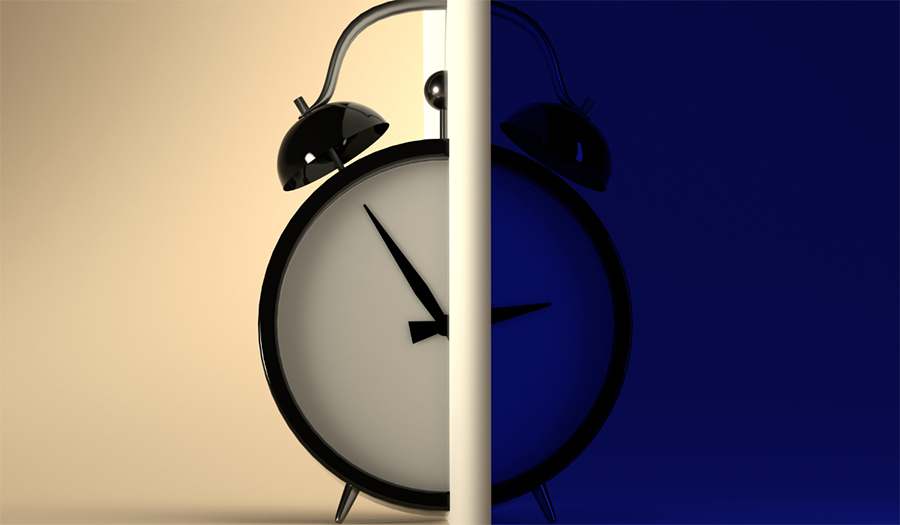How to heal, and get the most out of, your sleep cycle
Good sleep is something that most of us know we don’t get enough of—yet often, it’s one of the last things we think about when we decide to prioritize our health. One in four Canadians have trouble sleeping, and[1] studies show that Canadians between the ages of 35 and 49 get the least amount of sleep per night. There are myriad reasons why, on an individual level, that may be. High stress, for example, poor mental health, or the arrival of a new baby can impact an entire household’s sleep quality.
“Sleep is connected to every single process in our bodies,” says Jillian Dowling, the certified sleep consultant behind Niagara-based company Sleep Wise, which helps people of all ages improve their sleep. “You can connect anything, any ailment… like as far as cancer, Alzheimer's disease… really anything can on some level be associated to poor sleep.”
Sleep is regulated by our circadian rhythm, a 24-hour internal clock that tunes and controls our bodily processes.[2]Humans sleep to heal the body, consolidate memories, and keep organs functioning properly, meaning that sleep deprivation can have serious consequences on physical and mental health.
“Most adults need between seven and nine hours a night, and it’s funny, because most of them tell me they’re sleeping around six,” says Dowling.
When we don’t get enough sleep—or enough good quality sleep—we increase our risk of developing other chronic illnesses like obesity,[3] diabetes, cardiovascular disease, hypertension, and depression.[4] We miss out on important cues, like when to eat and when to release certain hormones.[5] People who get enough sleep get sick less often. They’re more likely to maintain a healthy weight, perform at a higher level at school and work, and have better relationships. Sleep deprivation can also have more direct, immediate consequences—falling asleep at the wheel of a car, for example, can cause serious injury or death. Older adults that are sleep-deprived may be more likely to fall or break a bone.[6]
If you have trouble sleeping, repairing your sleep cycle may seem like an impossible task. But it may only take you a month, says Dowling, if you’re willing to make certain changes.
“[Fixing sleep], it does take time and there is work involved, but there are things that you can do to get back on track,” says Dowling.
The best place to start is by eliminating light—the enemy of sleep—from your sleeping environment. Keep your bedroom as dark as possible. Install black out curtains, cover electronics that emit blinking light, and invest in a sleep mask.
Remember to turn off your phone an hour before bed—blue light from screens stop the release of melatonin, the hormone that makes us tired, and increase the release of cortisol, a stress hormone that keeps us awake.
Timing your sleep right is also important. Maintaining your circadian rhythm is all about consistency, and “supporting it means going to bed at the same time every night and waking up at the same time every morning.”
Expert Contribution by:

Jillian Dowling, Founder of Sleep Wise
Jillian Dowling is a certified sleep consultant based in Niagara. In 2012, she founded Sleep Wise, a company through which she develops holistic, non-medical sleep plans and programs for infants, toddlers, children, teens, and adults, as well as for corporate groups. You can reach her at
[1] https://www150.statcan.gc.ca/n1/pub/82-003-x/2022003/article/00001-eng.htm#[2]https://www.ncbi.nlm.nih.gov/books/NBK519507/#:~:text=The%20regulation%20of%20sleep%20is,light%20changes%20in%20our%20environment.[3]https://www.hsph.harvard.edu/nutritionsource/sleep/#:~:text=Sleep%20Deficiency%20and%20Eating%20Behaviors,allowed%20free%20access%20to%20food.[4] https://www.cdc.gov/diabetes/library/features/diabetes-sleep.html#:~:text=One%20in%20three%20US%20adults,disease%2C%20obesity%2C%20and%20depression.[5]https://www.ncbi.nlm.nih.gov/books/NBK519507/#:~:text=The%20regulation%20of%20sleep%20is,light%20changes%20in%20our%20environment.[6] https://www.nhlbi.nih.gov/health/sleep-deprivation






